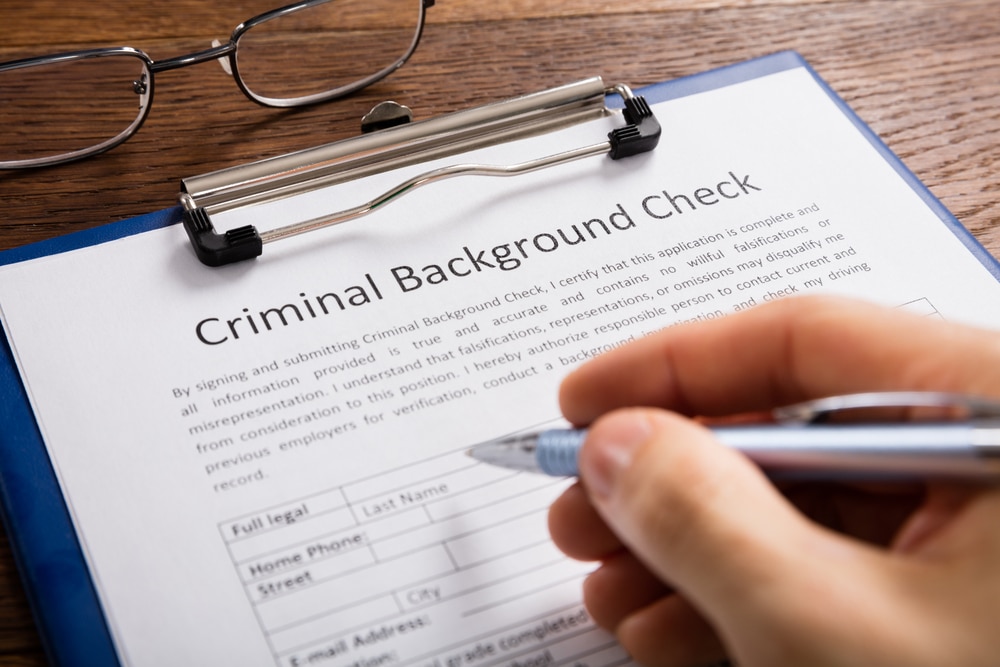The issue of criminal record checks and their impact on employment opportunities is a topic of considerable debate. On one hand, such checks are seen as a necessary precaution for employers to ensure the safety and security of their workplace and clients.
On the other hand, they can perpetuate barriers to employment for individuals who have made mistakes in the past and are seeking a second chance to rebuild their lives. In this article, we’ll delve into the complexities of this issue, exploring both the benefits and drawbacks of criminal record checks in the context of employment.
Understanding criminal record checks
Before we explore the implications of criminal record checks on employment, let’s first understand what they entail. A criminal record check involves reviewing an individual’s criminal history, typically through databases maintained by law enforcement agencies.
Employers may conduct these checks as part of the hiring process to assess the suitability of a candidate for a particular role, especially those involving sensitive information, financial responsibilities or interactions with vulnerable populations.
The benefits of criminal record checks
Proponents of criminal record checks argue that they serve several important purposes in the hiring process:
1. Protecting the workplace and clients
Employers have a duty to provide a safe and secure environment for their employees and clients. By conducting criminal record checks, they can identify individuals with a history of violent or dishonest behaviour that may pose a risk to others in the workplace.
2. Compliance with regulatory requirements
In certain industries, such as healthcare, education or finance, employers may be legally required to conduct criminal record checks as part of their hiring process. This is often mandated by regulations designed to safeguard vulnerable populations or sensitive information.
3. Maintaining trust and reputation
For organisations that serve the public or handle sensitive information, hiring individuals with criminal records could undermine public trust and damage their reputations. Conducting thorough background checks helps mitigate these risks and demonstrates a commitment to integrity and accountability.
The drawbacks and challenges
While criminal record checks serve legitimate purposes, they also present several challenges and potential drawbacks:
1. Perpetuating stigma and discrimination
Individuals with criminal records often face significant barriers to employment due to the stigma associated with their past mistakes. Even non-violent or minor offences can have long-lasting consequences, leading to discrimination and exclusion from job opportunities.
2. Hindering rehabilitation and reintegration
Employment plays a crucial role in the rehabilitation and reintegration of individuals with criminal records into society. By denying them job opportunities based on their past mistakes, we risk pushing them back into a cycle of crime and unemployment, perpetuating social and economic disparities.
3. Disproportionate impact on marginalised communities
Criminal record checks disproportionately affect marginalised communities, including people of colour, low-income individuals and those with mental health or substance abuse issues. These groups are more likely to have contact with the criminal justice system and face systemic barriers to employment.
Exploring alternative approaches
Given the complexities and potential drawbacks of relying solely on a DBS check, there is growing interest in exploring alternative approaches to assessing a candidate’s suitability:
1. Ban the box policies
‘Ban the Box’ initiatives seek to remove questions about criminal history from job applications, delaying inquiries about past convictions until later in the hiring process. This allows individuals to be evaluated based on their qualifications and skills before their criminal record is considered.
2. Individualised assessment
Employers can adopt a more nuanced approach to evaluating candidates with criminal records, taking into account factors such as the nature of the offence, its relevance to the job, the individual’s rehabilitation efforts and their demonstrated ability to perform the job responsibilities.
3. Supportive programs and resources
Employers can partner with community organisations, reentry programs and government agencies to provide support and resources to individuals with criminal records, including job training, mentorship, counselling and access to social services.
Conclusion
The question of whether criminal record checks prevent criminals from getting jobs is a complex one with no easy answers. While these checks serve legitimate purposes in ensuring workplace safety and compliance with regulations, they also pose challenges in terms of perpetuating stigma, hindering rehabilitation and exacerbating social inequities.
Moving forward, it’s essential to find a balance between protecting the interests of employers and providing opportunities for individuals to rebuild their lives and contribute positively to society.
This may involve adopting alternative approaches to assessing job candidates, supporting rehabilitation efforts and addressing the systemic barriers that contribute to recidivism and unemployment. Ultimately, by fostering inclusivity, fairness and compassion in the hiring process, we can create a more equitable and just society for all.




